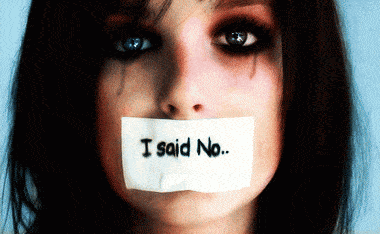(PJ MEDIA) …In a free society, an individual bears sole responsibility for his actions. A whole race, gender, or generation does not bear guilt for the sins of some or even of many in that group of people. It’s unfair and wrong.
But liberals don’t believe this. For example, a white person carries the shame of slavery even if his family members never owned slaves and even if he himself worked to free those in bondage. White equals guilt. Or, as another example, “society” is guilty for creating the psychosexual environment in which frustrated men must rape in order to feel dominant. And then there are the more mundane things like “if she weren’t poor, she wouldn’t be compelled to steal that Ralph Lauren dress.”
A criminal wouldn’t be a criminal if he were loved more and society supported him, therefore it’s society’s fault that he is committing the fill-in-the-blank crime.
So who is to blame, then, when a black man rapes a woman? Would it be the rapist? No….
Liberal activist Amanda Kijera traveled to Haiti on a mission to prove that the portrayal of black men as “savages” was not accurate. Kijera was brutally raped. Of course, she blamed the white man for the violence.
Gateway Pundit has this about the story:
Amanda Kijera was on a humanitarian trip to Haiti, when she was violently raped by a black man. The act was both coincidental and devastating, as Kijera was actually in Haiti to dispel the “myths” that violence against women on the island was overstated by women’s rights organizations. The intention of Kijera’s trip was to push back on the portrayal of black men as “savages” in the media. Her hope was that she would eliminate misconceptions and push back against common views imposed by “the man.” However, Kijera’s trip took a turn for the worse when one of the men she had worked to protect cornered her on the rooftop, and raped her numerous times.
“The experience was almost more than I could bear,” Kijera wrote about the incident, “I pleaded with him to honor my commitment to Haiti, to him as a brother in the mutual struggle for an end to our common oppression, but to no avail. He didn’t care.”
[….]
She also went on to argue that it is up to the United Nations to support people who are forced to bear the brunt of black male aggression. Kijera makes the outrageous claim that dependency on white people causes them to act out against them. She alludes that this was the reason for her attack.
Some interesting points made by Sons Of Montesquieu
Before Its News shot me to Occidental Dissent. This website is a racist website and I DO NOT RECOMMEND IT!! But this led to a forum with the same info:
We are not your weapons – we are women
By Amanda Kijera, civic journalist and activist in Haiti
Two weeks ago, on a Monday morning, I started to write what I thought was a very clever editorial about violence against women in Haiti. The case, I believed, was being overstated by women’s organizations in need of additional resources. Ever committed to preserving the dignity of Black men in a world which constantly stereotypes them as violent savages, I viewed this writing as yet one more opportunity to fight “the man” on behalf of my brothers. That night, before I could finish the piece, I was held on a rooftop in Haiti and raped repeatedly by one of the very men who I had spent the bulk of my life advocating for.
It hurt. The experience was almost more than I could bear. I begged him to stop. Afraid he would kill me, I pleaded with him to honor my commitment to Haiti, to him as a brother in the mutual struggle for an end to our common oppression, but to no avail. He didn’t care that I was a Malcolm X scholar. (he didn’t see her angel halo, Ed.) He told me to shut up, and then slapped me in the face. Overpowered, I gave up fighting halfway through the night.
Accepting the helplessness of my situation, I chucked aside the Haiti bracelet I had worn so proudly for over a year, along with it, my dreams of human liberation. Someone, I told myself, would always be bigger and stronger than me. As a woman, my place in life had been ascribed from birth. A Chinese proverb says that “women are like the grass, meant to be stepped on.” The thought comforted me at the same time that it made me cringe.
[….]
Women are not the source of their oppression; oppressive policies and the as-yet unaddressed white patriarchy which still dominates the global stage are. Because women–and particularly women of color–are forced to bear the brunt of the Black male response to the Black male plight, the international community and those nations who have benefitted from the oppression of colonized peoples have a responsibility to provide women with the protection that they need.
One can only get this point of view from spending (going into debt) at a rate of $30,000 a year via an “ivy league” education. Elitism in its purest form passed on by university professors.






